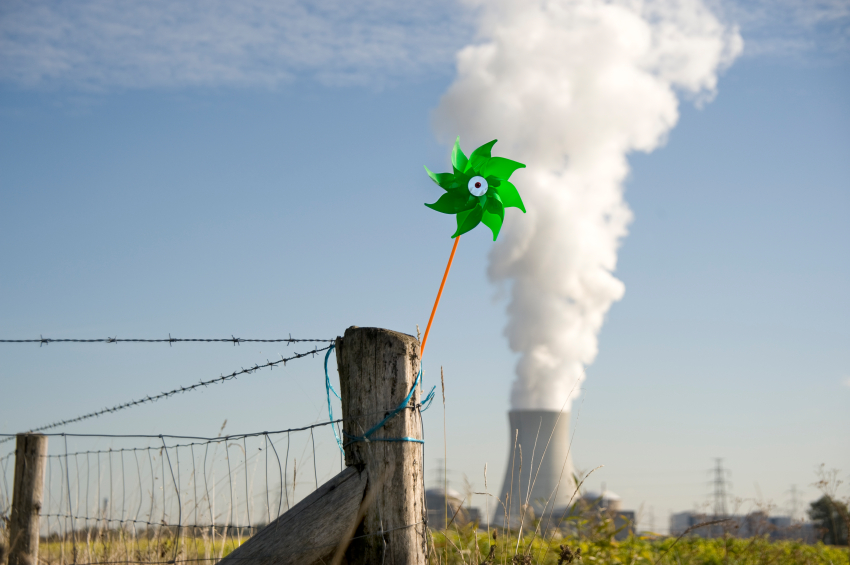
The energy regulator, Ofgem, has predicted that the UK risks running out of energy generating capacity in the winter of 2015-16. The National Policy Statement for Nuclear Power Generation, published in July 2011, identified eight sites as potentially suitable for new nuclear power stations and noted that there was an urgent need for these to be developed before the end of 2025. At the time of writing only one of the sites, Hinkley Point, is being progressed. The power company EDF has been granted a nuclear site licence for the site, which is the first major step towards a new build but there is still a long way to go. Interest in building new plants at Wylfa on Anglesey and Oldbury in Gloucestershire stalled when E.On and RWE pulled out of Horizon, the consortium bidding for the sites because the change in nuclear policy in Germany, where these companies are based. Germany’s decision to pull out of nuclear was made in response to the impact of the tsunami on the Fukushima power station in Japan. It is somewhat ironic, therefore, that Horizon has been bought by Hitachi, the company responsible for building the Fukushima plant. The good news, for those looking to nuclear power as a major contributor to low carbon energy generation in the UK, is that the new build programme at these two sites is now back on the agenda.
The National Policy Statement for Nuclear Power Generation, published in July 2011, identified eight sites as potentially suitable for new nuclear power stations and noted that there was an urgent need for these to be developed before the end of 2025.
At the time of writing only one of the sites, Hinkley Point, is being progressed. The power company EDF has been granted a nuclear site licence for the site, which is the first major step towards a new build but there is still a long way to go. Interest in building new plants at Wylfa on Anglesey and Oldbury in Gloucestershire stalled when E.On and RWE pulled out of Horizon, the consortium bidding for the sites because the change in nuclear policy in Germany, where these companies are based.
Germany’s decision to pull out of nuclear was made in response to the impact of the tsunami on the Fukushima power station in Japan. It is somewhat ironic, therefore, that Horizon has been bought by Hitachi, the company responsible for building the Fukushima plant. The good news, for those looking to nuclear power as a major contributor to low carbon energy generation in the UK, is that the new build programme at these two sites is now back on the agenda.
But there are still major hurdles to be jumped before any real progress can be made. The first of these relates to the type of nuclear reactor that Hitachi proposes to construct. Before work on new build can commence, the proposed design has to pass two assessment tests, Regulatory Justification and the Generic Design Assessment. The Justification of Practices Involving Ionising Radiation Regulations 2004/1769 implement international and European principles to the effect that no new practices involving exposure to ionising radiation can be adopted unless there is sufficient benefit to exposed individuals or society at large to offset any radiation detriment. The UK procedures for determining justification are exceedingly thorough. To date only two nuclear power procedures have been justified, the EPR and AP1000 Pressurised Water Reactors (PWRs). Hitachi’s design is an advanced boiling water reactor (ABWR), new to the UK and therefore requiring justification. The ABWR is a proven technology but will, nevertheless, have to undergo a Generic Design Assessment to determine its safety in a UK context. These two procedures could take several years.
The second major hurdle and potential block on new build altogether, is the price paid per unit of energy produced. The Energy Bill, published on November 29, introduces measures for ‘contracts of difference’, designed to provide a stable return for investors in low carbon energy production. If the price falls below a pre-determined ‘strike price’, companies will get compensation; if it exceeds the strike price, companies will pay money back to consumers. The industry has broadly welcomed these measures but no company will commit to going further with new build until an acceptable strike price has been set. Negotiations continue and it is expected that a decision will be made in the new year.
Meanwhile, EDF has just announced that it will be seeking to extend the life of its existing nuclear power stations at Hinkley Point B and Hunterston B for seven years, taking their projected closure date from 2016 and 2023. Some small comfort for the Government’s low carbon energy aspirations perhaps.







